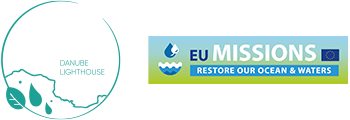Tackling Plastic Waste in the Bodrog Floodplain
Organization: Plastic Cup Society (Hungary)
Based on 10+ years of experience Plastic Cup Society will showcase a complex toolkit against plastic pollution of rivers that builds on citizen science, knowledge sharing, awareness raising and stakeholders’ engagement. A joint effort to develop adaptable solutions to prevent and stop plastic pollution at the rivers before reaching the oceans.
Figures (for quantification):
- estimated amount of waste in the Hungarian Bodrog floodplain (2x50 km river bank): 90-100 tonnes
- so far collected waste on Bodrog river by Plastic Cup (2019-2023): approx 30 tonnes on different events
- total collected waste of Plastic Cup (2013-2023): over 300 tonnes on different rivers
- prevented waste in Ukraine by partners of Plastic Cup 700 tonnes that will not come into rivers (including Bodrog)
- target figures for the 2 years of pilot implementation within DALIA: at least 10 tonnes of waste removed from Bodrog, 100 volunteers and local stakeholders involved, River Saver toolkit and map implemented, etc.







General Overview
The site area includes the Hungarian section of the Bodrog River, sections of which have been placed under protection: the Nagy-Kopasz, which belongs to the Tokaj-Hegyalja region, and the Bodrog-Tisza floodplain, providing various habitats to permanent or migrating populations. The transboundary litter pollution on the Tisza River results in extensive contamination with various forms of plastic waste, including microplastics and macroplastic particles derived mainly from improperly managed household waste. In addition to that, toxic substances leaking from abandoned mines and otherwise derived chemicals result in the issue of legacy pollution, creating critical environmental situations in the region.
Implemented Measure
Plastic Cup is as one of the most influential and effective river cleanup initiatives in the Danube River Basin, mitigating environmental damage and reducing plastic pollution in the Bodrog River, operating based on the pillars of Research, River Cleanup Actions, and Environmental Education.
In terms of research and new developments, the creation of an online river pollution map allows monitoring the accumulations of litter monitor the largest accumulations of litter, a hydrological model with GPS-based tracking of plastic commercial bottles gave the ability to monitor plastic pollution dispersal during flooding events, and remote sensing through satellite imaging can track the migration of floating macroplastic accumulations to provide data for modeling efforts and to improve the understanding of the dynamics of plastic pollution in the Bodrog River.
Multiple River Cleanup Actions have been organized to draw attention to the intrinsic value of the rivers. The organization of professional and Community River Cleanups provides information to fine-tune the process and increase the ability to respond quickly to pollution incidents in river environments.
Environmental Education allows for the adaptation of practices to the needs, capabilities, and conditions of the people involved. Educational material developed in the theme of “RiverSaver”, as well as spaces like the River Litter Lab and RiverSaver Center allow communities and individuals to gain experience and respect the interrelationship between human actions and rivers.
Impact of the Measures on the Environment
Rivers have an undeniable socio-economic impact on the areas they pass through. Sectors like agriculture, aquaculture, fisheries, commercial shipping, recreational boating, coastal communities, coastal tourism, and emergency response services undoubtedly benefited from the presence of rivers, and thus the related processes are adversely affected by marine litter both in the environmental and industrial aspect. By initiating research, cleanup, and education efforts in the affected areas, there have been remarkable improvements in habitat conditions by reducing plastic pollution and improving overall environmental quality.
Summary and Recommendations
Representatives of 175 nations at the UN Environment Assembly in Nairobi established an Intergovernmental Negotiating Committee (INC)11 to finalize a
legally binding agreement to end plastic pollution by the end of 2024. In the European Union, numerous current and future directives aim to redirect investment towards sustainability help implement the European Green Deal, and provide for the appropriate legal framework for the protection and management of freshwater and marine resources. The Blue Deal as well as the comprehensive recommendation paper prepared by DALIA partner THU at the request of the International Commission for the Protection of the Danube River (ICPDR) entitled Policy Guidance on Managing Transnational Riverine Litter Pollution, will shed light on the management of micro and macro plastic pollution and provide policy recommendations.
Videos
 Bodrog trailer activities - https://youtu.be/4BfabdA8M0s
Bodrog trailer activities - https://youtu.be/4BfabdA8M0s
Interview of Gyalai-Korpos Miklós - Plastic Cup Project Manager, partner of DALIA, and responsible for the development of DPS8 (Tackling Plastic Waste in the Bodrog Floodplain - Hungary) activities












